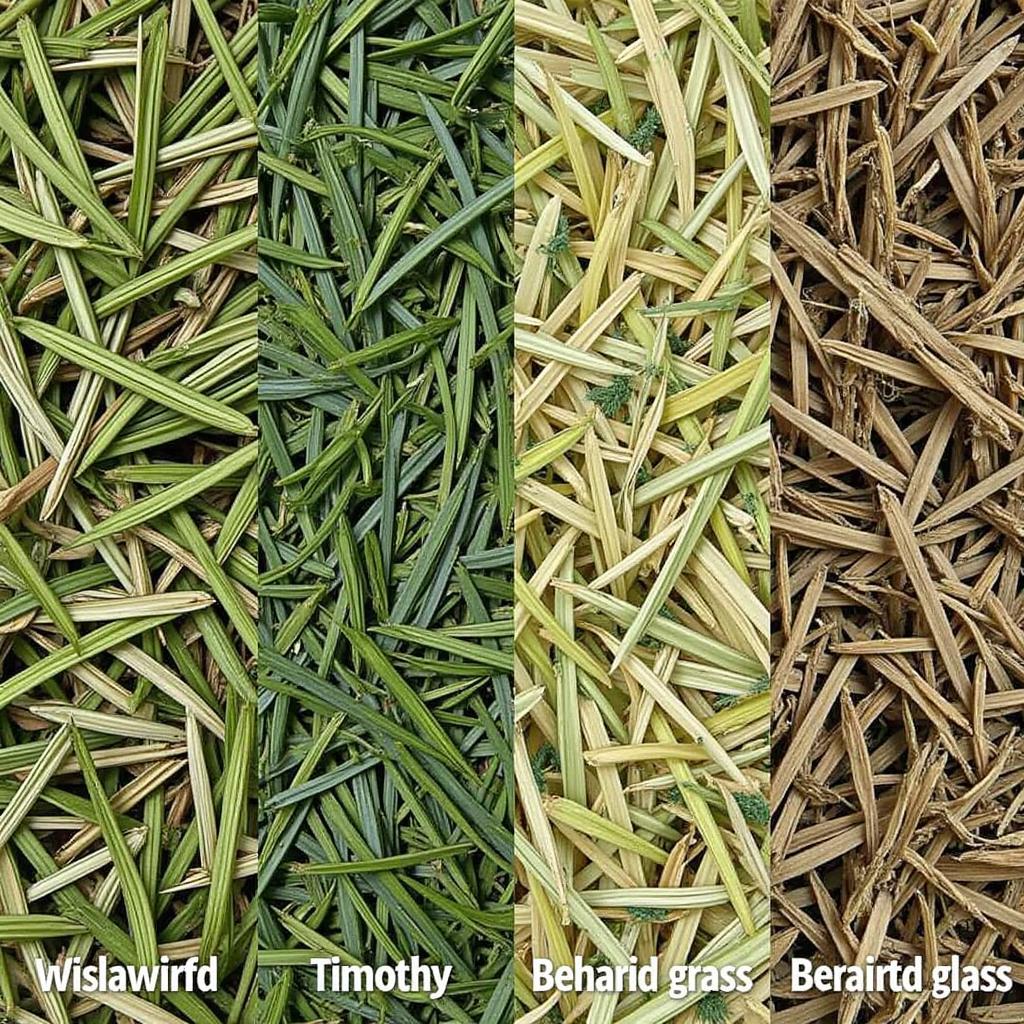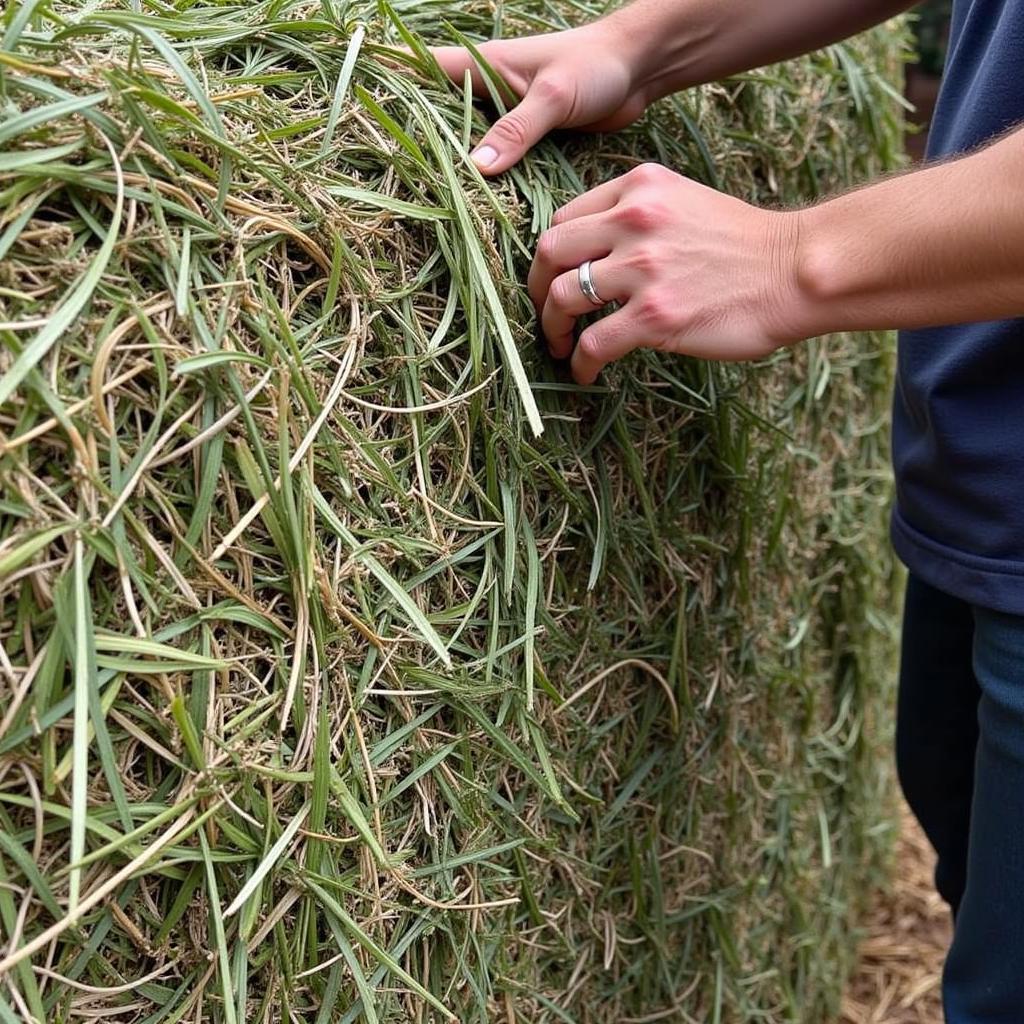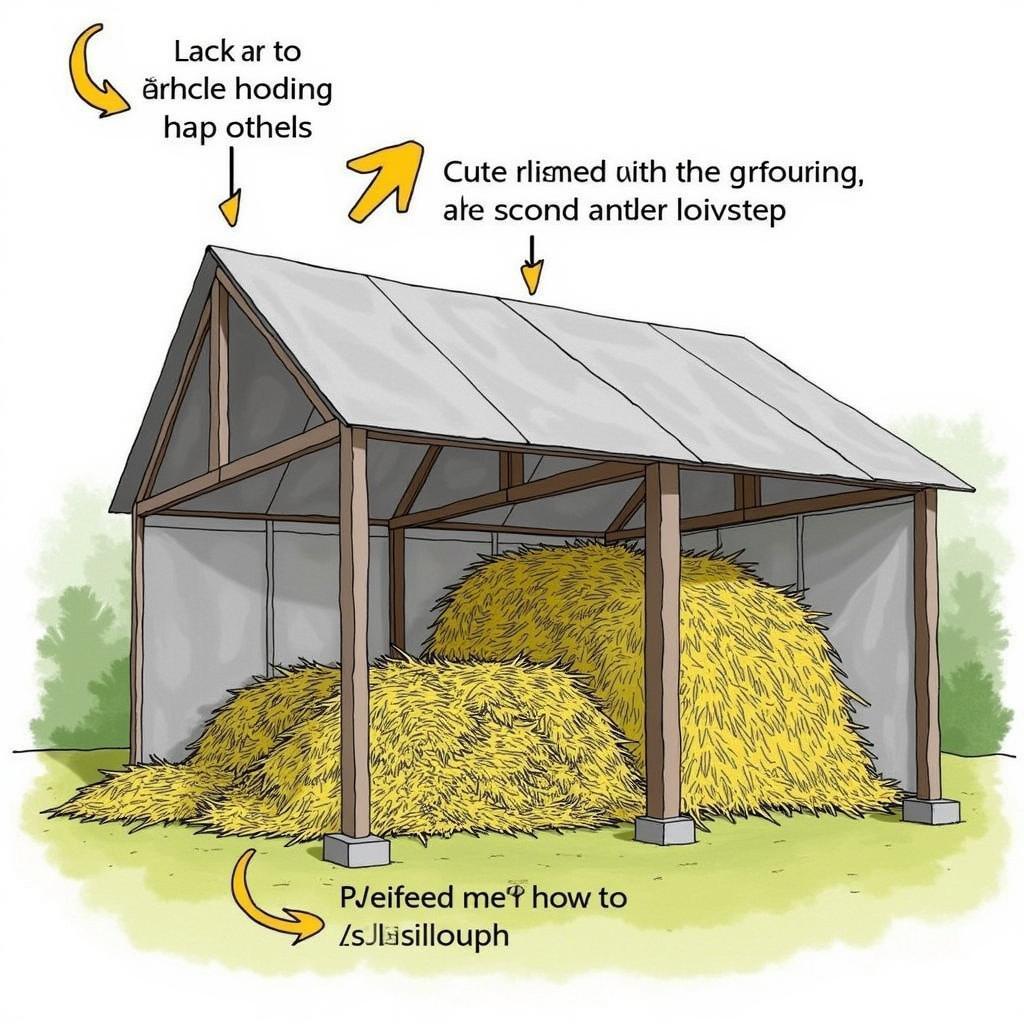Choosing the right hay is a crucial aspect of horse ownership. Just like humans need a balanced diet, horses thrive on quality forage to fuel their energy, maintain a healthy weight, and support their overall well-being. If you’re searching for “Hay For Horses For Sale,” you’re on the right track to providing your equine companion with the nutrition they deserve. But before you hit “buy now,” let’s unravel the nuances of selecting the perfect hay for your horse’s needs.
 Different Types of Hay for Horses
Different Types of Hay for Horses
Understanding the Hay Basics
Hay is essentially dried grass, legumes, or other plants, harvested and baled to preserve their nutritional value. The type of hay, its maturity at harvest, and storage conditions all play a significant role in its quality and suitability for your horse.
Types of Hay: A Comparative Look
Not all hay is created equal. Let’s explore some popular options:
- Alfalfa Hay: Known for its high protein and calcium content, alfalfa is a legume hay often favored for growing horses, pregnant or lactating mares, and senior horses needing extra calories.
- Timothy Hay: This grass hay is a staple for many horse owners due to its moderate calorie, protein, and calcium levels, making it suitable for a wide range of horses.
- Orchard Grass Hay: Another palatable grass hay, orchard grass offers good nutritional value and is often easier to digest than timothy, especially for horses with sensitive digestive systems.
 Checking Hay Quality for Horses
Checking Hay Quality for Horses
Key Factors When Buying Hay
When browsing listings for “hay for horses for sale,” consider these essential factors:
-
Visual Inspection: Examine the hay’s color, smell, and texture. Good quality hay should have a fresh, grassy aroma, a greenish hue, and feel soft to the touch. Avoid hay that appears dusty, moldy, or discolored, as these could indicate poor quality or potential health hazards.
-
Know Your Source: Purchasing hay from a reputable supplier is crucial. Ask about their harvesting and storage practices. Properly stored hay retains its nutritional value and minimizes the risk of contamination.
-
Consider Your Horse’s Needs: Just like people, horses have different nutritional requirements based on their age, activity level, and health status. Consult with your veterinarian or an equine nutritionist to determine the best hay type and feeding program for your individual horse.
Beyond the Bale: Additional Tips
-
Introduce new hay gradually: Horses have sensitive digestive systems. When switching hay types, do so gradually over several days to prevent digestive upset.
-
Monitor your horse’s weight and condition: Hay intake should be adjusted based on your horse’s individual needs. Regular weight checks and body condition scoring can help you ensure your horse is maintaining a healthy weight.
 Best Practices for Storing Hay
Best Practices for Storing Hay
- Store hay properly: Protect your hay investment by storing it in a clean, dry, and well-ventilated area. This will help preserve its quality and prevent spoilage.
Choosing the right “hay for horses for sale” is an investment in your horse’s health and happiness. By understanding the different types of hay, their nutritional value, and how to evaluate quality, you can provide your equine partner with the best possible forage. Remember, a well-informed horse owner is a responsible horse owner.
FAQs about Hay for Horses
Q: Can I feed my horse too much hay?
A: While hay should make up the majority of a horse’s diet, overfeeding can lead to obesity and other health issues. It’s essential to monitor your horse’s weight and adjust hay intake accordingly.
Q: How much hay should I feed my horse per day?
A: As a general rule, horses should consume 1.5% to 2.5% of their body weight in hay per day. However, this can vary based on factors such as age, activity level, and metabolism.
Q: Can I mix different types of hay?
A: Yes, mixing hay types can be a good way to balance your horse’s diet. For example, you could offer a combination of alfalfa and timothy hay.
Q: What should I do if I find mold in my hay?
A: Moldy hay can be harmful to horses. If you discover mold, discard the affected bale and inspect the rest of your hay supply carefully.
Q: Where can I find high-quality “hay for horses for sale” near me?
A: Reputable local feed stores, horse farms, and online retailers specializing in equine supplies are good places to start your search.
Need help finding the perfect hay for your equine friend? Contact Justus Horses USA today! Our team of experts is here to provide personalized guidance and help you make informed decisions about your horse’s care.
Call us at 0772127271, email us at [email protected], or visit us at QGM2+WX2, Vị Trung, Vị Thuỷ, Hậu Giang, Việt Nam. We’re available 24/7 to assist you.